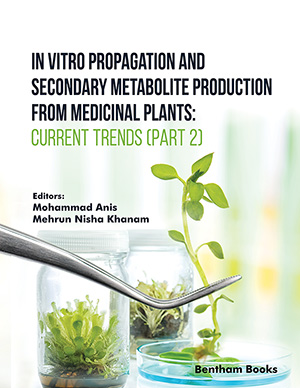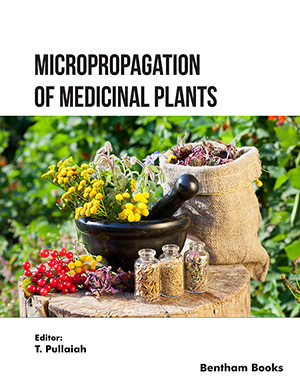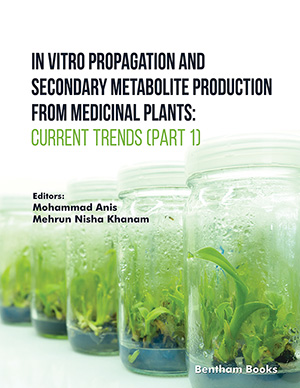Abstract
Colorectal cancer (CRC) is one of the world's most common types of malignancy. The proliferation of precancerous lesions causes this type of cancer. Two distinct pathways for CRC carcinogenesis have been identified: the conventional adenoma-carcinoma pathway and the serrated neoplasia pathway. Recently, evidence has demonstrated the regulatory roles of noncoding RNAs (ncRNAs) in the initiation and progression of precancerous lesions, especially in the adenoma-carcinoma pathway and serrated neoplasia pathway. By expanding the science of molecular genetics and bioinformatics, several studies have identified dysregulated ncRNAs that function as oncogenes or tumor suppressors in cancer initiation and formation by diverse mechanisms via intracellular signaling pathways known to act on tumor cells. However, many of their roles are still unclear. This review summarizes the functions and mechanisms of ncRNAs (such as long non-coding RNAs, microRNAs, long intergenic non-coding RNAs, small interfering RNAs, and circRNAs) in the initiation and formation of precancerous lesions.
Keywords: Noncoding RNAs, colorectal neoplasms, precursor lesion, mechanism, precancerous, cancer.
[http://dx.doi.org/10.3322/caac.21660] [PMID: 33538338]
[http://dx.doi.org/10.1007/s11894-019-0703-8] [PMID: 31289917]
[http://dx.doi.org/10.1016/j.bpg.2017.06.004] [PMID: 28842051]
[http://dx.doi.org/10.3390/ijms22010130] [PMID: 33374459]
[http://dx.doi.org/10.3892/or.2018.6330] [PMID: 29565457]
[PMID: 24834258]
[PMID: 26421170]
[http://dx.doi.org/10.1002/jcb.28739] [PMID: 30993787]
[PMID: 32099599]
[PMID: 32099598]
[http://dx.doi.org/10.3390/ncrna7020024] [PMID: 33807355]
[http://dx.doi.org/10.1038/nrg3074] [PMID: 22094949]
[http://dx.doi.org/10.1016/j.cell.2019.10.017]
[http://dx.doi.org/10.3389/fonc.2022.783079] [PMID: 35186731]
[http://dx.doi.org/10.1111/his.13975] [PMID: 31433515]
[http://dx.doi.org/10.1093/gastro/got041]
[http://dx.doi.org/10.1016/j.suronc.2007.10.039] [PMID: 18023574]
[http://dx.doi.org/10.1007/s10620-019-5454-8] [PMID: 30627918]
[http://dx.doi.org/10.1136/gutjnl-2016-312893] [PMID: 27852795]
[http://dx.doi.org/10.3390/cancers11071017] [PMID: 31330830]
[http://dx.doi.org/10.1038/s41598-020-59899-z] [PMID: 32076059]
[http://dx.doi.org/10.1007/s11888-017-0354-9] [PMID: 28413363]
[http://dx.doi.org/10.1038/s41379-018-0069-8] [PMID: 29789649]
[http://dx.doi.org/10.1053/j.gastro.2019.08.059] [PMID: 31622622]
[http://dx.doi.org/10.1038/onc.2014.416] [PMID: 25500543]
[http://dx.doi.org/10.1002/path.5129] [PMID: 29968252]
[http://dx.doi.org/10.1093/annonc/mdy337] [PMID: 30412224]
[http://dx.doi.org/10.1002/ags3.12362] [PMID: 33005848]
[http://dx.doi.org/10.1007/s11240-019-01726-z]
[http://dx.doi.org/10.5772/intechopen.76125]
[http://dx.doi.org/10.1016/j.gene.2020.144796] [PMID: 32450203]
[http://dx.doi.org/10.1016/j.biopha.2020.111099] [PMID: 33338745]
[PMID: 33880345]
[http://dx.doi.org/10.1097/PPO.0b013e318258b78f] [PMID: 22647361]
[http://dx.doi.org/10.1016/j.omtn.2020.10.030] [PMID: 33335791]
[http://dx.doi.org/10.1007/s10528-019-09918-0] [PMID: 30997628]
[http://dx.doi.org/10.7150/jca.12351] [PMID: 26958084]
[http://dx.doi.org/10.3389/fonc.2020.577653] [PMID: 33194696]
[http://dx.doi.org/10.1186/s12885-016-2628-z] [PMID: 27495250]
[http://dx.doi.org/10.1111/jcmm.14209] [PMID: 30801950]
[http://dx.doi.org/10.2217/epi-2021-0277] [PMID: 34894715]
[http://dx.doi.org/10.1038/s41598-017-04386-1] [PMID: 28646161]
[http://dx.doi.org/10.14309/ctg.0000000000000003] [PMID: 30702491]
[http://dx.doi.org/10.3390/biom9100519] [PMID: 31546665]
[http://dx.doi.org/10.1186/s12943-019-1052-9] [PMID: 31399034]
[http://dx.doi.org/10.1016/j.bbcan.2018.12.005] [PMID: 30599187]
[http://dx.doi.org/10.18632/aging.102417] [PMID: 31727866]
[http://dx.doi.org/10.3390/cancers14010202] [PMID: 35008366]
[http://dx.doi.org/10.2217/epi.15.37] [PMID: 25929784]
[http://dx.doi.org/10.3390/cancers12010188] [PMID: 31940941]
[http://dx.doi.org/10.1111/cas.13300] [PMID: 28618124]
[http://dx.doi.org/10.3390/genes12040598] [PMID: 33921704]
[http://dx.doi.org/10.3389/fcell.2021.641052] [PMID: 33791297]
[http://dx.doi.org/10.1158/1055-9965.EPI-18-0318] [PMID: 29976566]
[http://dx.doi.org/10.2147/CMAR.S193266] [PMID: 31118791]
[http://dx.doi.org/10.3390/cells8111390] [PMID: 31694219]
[http://dx.doi.org/10.1016/j.surg.2012.05.006] [PMID: 22828149]
[http://dx.doi.org/10.1002/jcp.28281] [PMID: 30919964]
[http://dx.doi.org/10.1016/j.phrs.2019.104550] [PMID: 31866285]
[http://dx.doi.org/10.1016/j.jss.2004.07.043]
[http://dx.doi.org/10.1155/2015/326981]
[http://dx.doi.org/10.1158/1078-0432.CCR-13-2017] [PMID: 25589625]
[http://dx.doi.org/10.1007/s10142-016-0524-x] [PMID: 27681237]
[http://dx.doi.org/10.1101/gr.152942.112] [PMID: 23796952]
[http://dx.doi.org/10.3892/mmr.2018.9191] [PMID: 29956772]
[http://dx.doi.org/10.1111/jgh.13606] [PMID: 27696511]
[http://dx.doi.org/10.1186/s12943-019-1105-0] [PMID: 31791342]
[http://dx.doi.org/10.1266/ggs.21-00102] [PMID: 35296566]
[http://dx.doi.org/10.3892/ol.2020.11518] [PMID: 32391102]
[http://dx.doi.org/10.1186/s12935-021-02288-x] [PMID: 34809621]
[http://dx.doi.org/10.1016/j.canlet.2016.03.022] [PMID: 27012187]
[http://dx.doi.org/10.1177/1947601911431081] [PMID: 22393467]
[http://dx.doi.org/10.1186/s12943-017-0583-1] [PMID: 28086904]
[PMID: 31646561]
[http://dx.doi.org/10.1111/jcmm.14300] [PMID: 30920116]
[http://dx.doi.org/10.3389/fonc.2019.01542] [PMID: 32010629]
[PMID: 31632544]
[http://dx.doi.org/10.1038/s41467-020-15547-8] [PMID: 32358485]
[http://dx.doi.org/10.1016/j.gene.2018.04.014] [PMID: 29679755]
[http://dx.doi.org/10.7554/eLife.14620] [PMID: 27077950]
[http://dx.doi.org/10.1158/0008-5472.CAN-15-1824] [PMID: 27520449]
[http://dx.doi.org/10.1016/j.jbiotec.2021.08.005] [PMID: 34371054]
[http://dx.doi.org/10.1016/j.ddstr.2013.03.001] [PMID: 25580147]
[http://dx.doi.org/10.1186/s13046-020-01700-0] [PMID: 32928281]
[PMID: 21042710]
[http://dx.doi.org/10.1186/s12935-019-1000-1] [PMID: 31708689]
[http://dx.doi.org/10.3389/fmolb.2021.646786] [PMID: 33996902]
[http://dx.doi.org/10.3390/ijms22115640] [PMID: 34073237]
[http://dx.doi.org/10.3892/mco.2019.1872] [PMID: 31281651]
[http://dx.doi.org/10.1172/JCI83265] [PMID: 26752646]
[http://dx.doi.org/10.3389/fonc.2020.00663] [PMID: 32670861]
[http://dx.doi.org/10.1111/jcmm.16380] [PMID: 33687140]
[http://dx.doi.org/10.3892/ijmm.2017.3189] [PMID: 29039473]
[http://dx.doi.org/10.1093/carcin/bgy144] [PMID: 30403769]
[http://dx.doi.org/10.1186/s12935-021-02196-0] [PMID: 34535136]
[http://dx.doi.org/10.1016/j.tig.2017.11.005] [PMID: 29249332]
[http://dx.doi.org/10.1158/0008-5472.CAN-18-2403] [PMID: 31072811]
[http://dx.doi.org/10.1186/s13046-020-01552-8] [PMID: 32183847]
[http://dx.doi.org/10.2147/OTT.S81393] [PMID: 26648739]






























